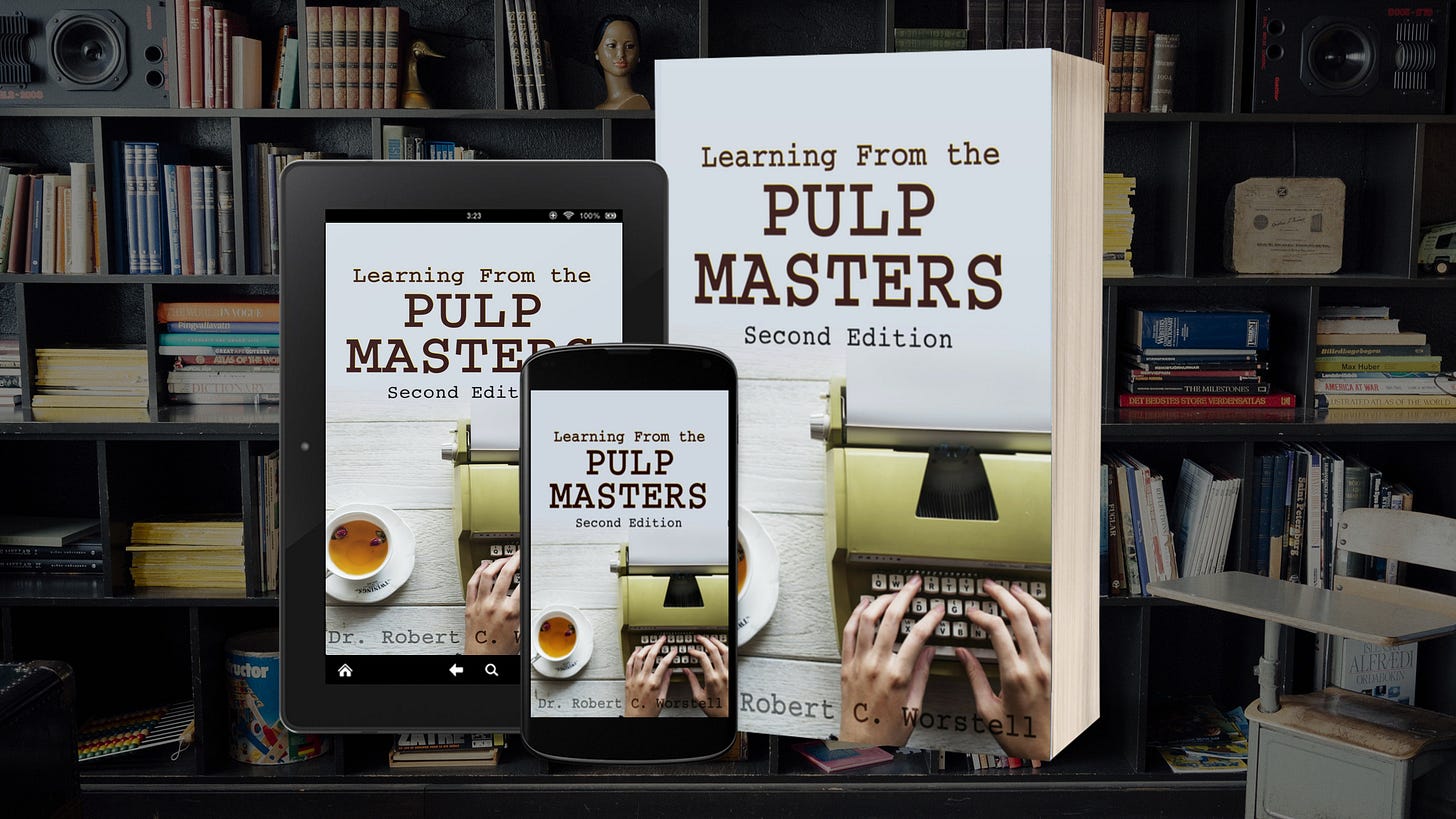[Writerpreneur] The Dark End of Your Story
Not so evident in short stories, but essential to any climax, is the point where all is possibly lost for the main viewpoint character. It's seldom touched on in most author-craft books, and so...
TOWARDS THE END of any story there is a Dark Moment where the hero is faced with a momentous decision, generally between right and wrong. Wrong is presented as glamorous, and right as difficult, and the choice is thus made simple.
In real life, of course, it is not always easy to distinguish right from wrong, since real life is complex and the truth is never simple.
But in fiction any hero can distinguish right from wrong at a glance: his trouble is to make the decision. Note that his decision is a moral decision, not an intellectual one, and once he has made it almost anything may happen. In fact, this decision in most stories is a knockout blow to plausibility, which never recovers entirely during the remainder of the yarn. Plausibility, indeed, is so groggy after the decision that the reader will accept almost anything in the sequel, however improbable. If you must introduce Providence, this is the part of the story in which it might appear without wrecking the plot—not as a solution, but as a kind of blessing or reward.
A very simple plot is sufficient for the short story: any adjustment of your hero or heroine to anything outside him. A mere change of mind is enough. For example, a story in which a woman makes up her mind which of two men she will marry. All stories are action stories in this sense; since, as Hegel puts it, “contradiction is the root of all movement and all life, and only in so far as a thing incorporates a contradiction does it possess impulse and activity.” Thus, even in the wildest of Wild Western magazines, you will find, as often as not, some story wherein, as some wag has put it, there are “no guns, no hits, no errors.” No menace, no villain appears—only a personal adjustment of some kind.
(From Walter S. Campbell’s Writing Magazine Fiction)
Discussion
Of course, this concept is in Joseph Campbell’s Hero of a Thousand Faces. As such, it also shows up in Coyne’s Story Grid (because he bases his work largely on this and Robert McKee’s Story.) This is their “All is Lost” moment.
And in microcosm, you see this in every scene-sequel. Instructor Dwight V. Swain has this in his framework: Goal-Conflict-Disaster, Reaction-Dilemma-Decision. (See Writerpreneur: The Basic Formulas of Fiction)
Since many short stories are a single scene-sequel, this works.
We also then have to return to W. S. Campbell’s Non-fiction framework of Hey-You-See-So and incorporate Algis Budry’s (Writing to the Point) three try-fails into the See part of this. Deborah Chester also mentions the consistent failure of the main character (MC) in her Fiction Formula. Then the hero learns each time through his consistent failures, ultimately having to dig deep and just believe in himself and his lessons - where he finally wins out over the villain. That is where the Dark Night of the Soul shows up. The reader then has their cathartic moment and the story is validated. The hero then gets their MacGuffin, as Hitchcock called it.
But most important to the story’s reader is that the character learns something valuable. The reader is after a new pattern to adopt in dealing with the conflicts between the real world and his moral duties. That is why they read. The hint of this resolution is the heart of all copywriting.
Not too oddly, this is the goal of most all good self-help. And once attained, gives the reader unflappable self-confidence. It’s not that they won’t face crises in life, but they have an inner core which helps them face and solve it. Reaffirming this through their trials just makes them stronger. Self-help as a model follows the Non-Fiction Framework above - and in the Big Idea books, their narratives are just collected short stories which have the Dark End/Night in each.
As Damon Knight phrased it, “There’s gotta be a hero, and the hero’s gotta win.”
Paid subscribers have instant access to the digital editions, as below:
Keep reading with a 7-day free trial
Subscribe to Writing While Farming to keep reading this post and get 7 days of free access to the full post archives.






